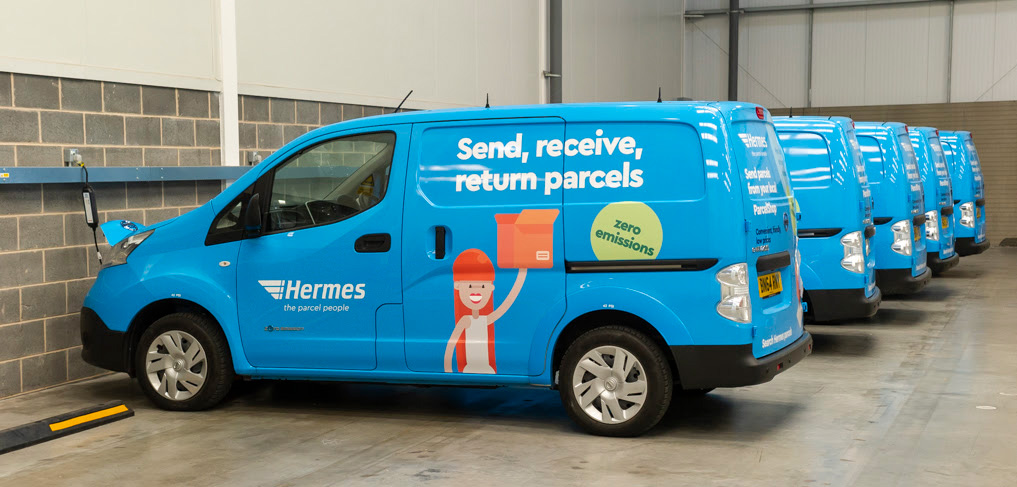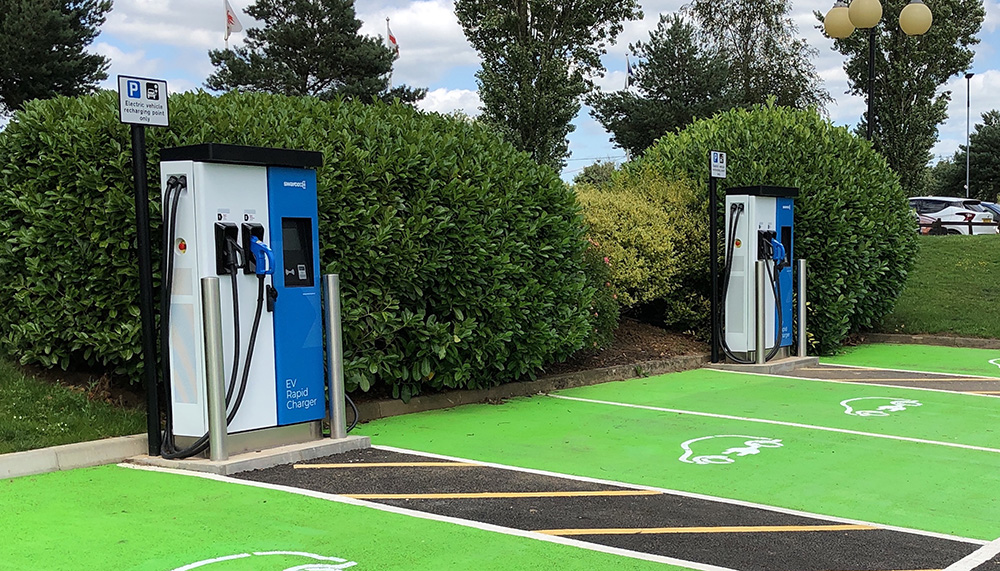If you are thinking about transitioning some or all of your company fleet to plug-in hybrid (PHEV) or 100% battery-electric (BEV) vehicles, you’re not alone.
More and more businesses are looking for options to convert their fleet into a more economical and environmentally friendly proposition, whilst seeking out financial benefits and incentives for doing so.
Whether your reasoning is financial or part of your Corporate Social Responsibility initiatives, read on to learn how switching to PHEV or BEV fleets can benefit your business.
Ownership costs
The cost of ownership for EVs is consistently declining, meaning that you are likely to find the total lifetime costs for them are better value than for a petrol or diesel fleet. There are government initiatives for the purchase of EVs and for the installation of charging points at workplaces too, so you may benefit from even further savings using those schemes.
Low Emission Zones
More and more cities are implementing low emission (LEZ) or clean air zones (CAZ) in 2021 and beyond, including London, Bristol, Birmingham, Oxford, and several Scottish cities.
Travelling into these zones with high-emission vehicles is likely to result in a Penalty Charge Notice (PCN) which, if using a large fleet of vehicles, will soon stack up to a significant cost for your business.
Corporate Social Responsibility (CSR)
Many businesses are investigating the transition to PHEV and EV as part of their commitment to CSR. Not only does this reduce your business impact on our environment, but it also improves your corporate image and may help to recruit prospective customers and employees in the future.
Maintenance & running costs
The running and maintenance costs for EVs are much lower than for traditional combustion engine vehicles. The savings to be had in fuel costs alone could save thousands if not tens of thousands of pounds every year depending on your fleet size.
Charging Infrastructure & Workplace Charging
One of the primary concerns with switching to EV fleets is the availability of charging stations in public spaces. Although the number of charging points is growing month by month across the UK, compared to fossil-fuel refill stations they are certainly sparser and can be expensive.
For that reason, many companies are choosing to install EV charging stations at depots and workplaces, enabling operational charging to take place either during the day or overnight in preparation for a day’s work.
With workplace chargers installed at your site, the prospect of an electrified fleet becomes much more realistic, with additional cost savings to be made using your own energy source rather than relying on the potentially costly public charging network.
Workplace charging procurement & installation
To make the transition to an EV fleet as simple as possible, it is recommended to work in partnership with a recognised, approved EV charger installer who can procure your stations and provide an appropriate charging network for your business, to suit your demands now and in the future.
T H WHITE Energy, Fire & Security provide objective, honest advice with a wealth of industry experience to help you make the best decision for your business now and for years to come.
Using our expertise and industry knowledge, we can identify funding opportunities for your business and recommend a site design which makes the most of your space and electrical capacity too.
Types of Chargers
There are a variety of different types of charging points available and appropriate for workplace, public or home installations. Together with you, we can determine how many, and which type of chargers you need to get the best benefit for your business.
Slow chargers (3kW) are typically installed either at homes or in workplaces where vehicles are charged for long periods of time. This is because they can take between 8-12 hours to complete a full charge. This type of charger may be suitable for your business if you are looking to charge your vehicles overnight, or for staff who spend extended periods of time at the workplace.
Fast chargers (7-22kw) will charge an EV at twice the speed of a slow charger. This means a full charge can be completed in between 4-8 hours, ideal for use in public spaces or workplaces.
They can be installed at home but are typically more expensive than a slow charger and so become less economical for a domestic customer who can charge their vehicle overnight.
Rapid chargers are typically found in service stations and can charge an EV battery up to 80% in just 30 minutes. Available in two formats AC (43kW) and DC (50kW), they draw a large amount of power and as such are not suitable for domestic installations or some commercial businesses depending on the power supply available.
Speak to a Specialist
There are likely to be other considerations needed for your business before you make the switch to EV, but our experts are here to help answer any of your questions.
Whether you are looking for advice on charger types, information on grants and funding opportunities or even a quote for an installation or charger maintenance – our knowledgeable team can provide no-obligation support.
Give us a call to talk in more detail about your needs or ask any questions on 01380 726656
You can also visit our website for more information – efs.thwhite.co.uk




